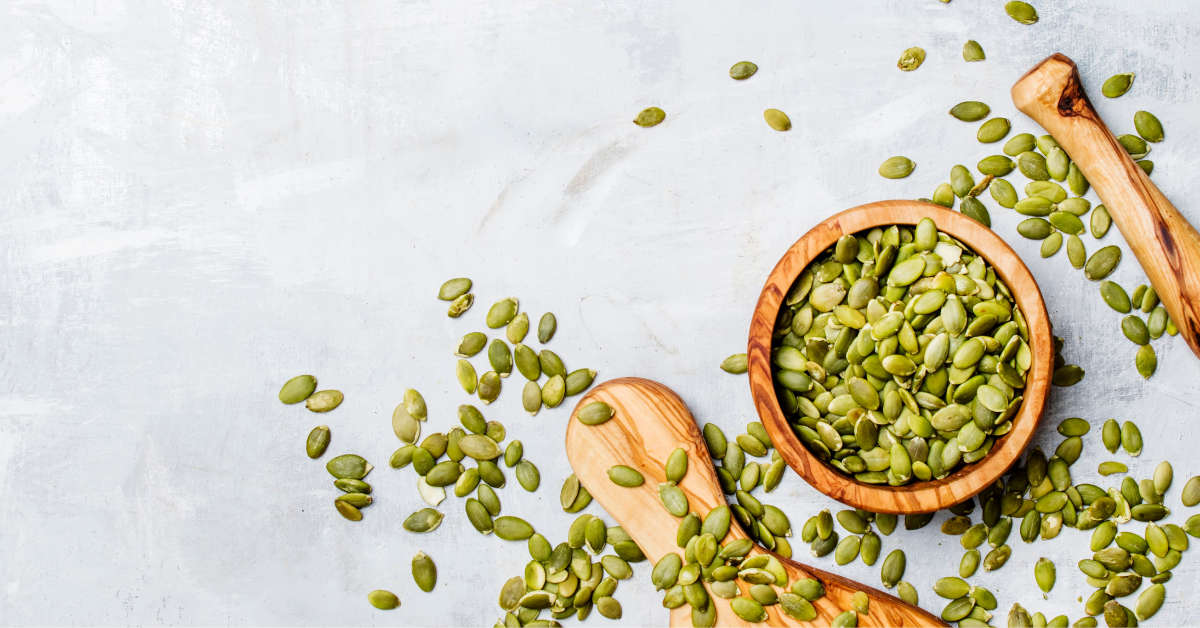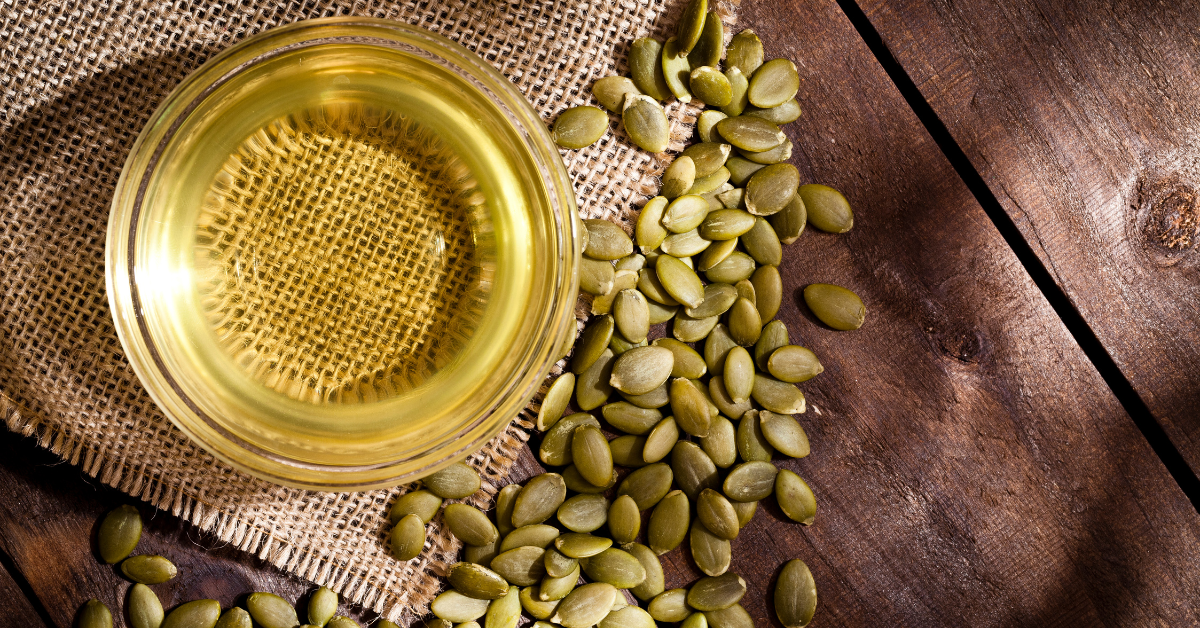Surprising Facts About Pumpkin Seeds You Didn’t Know
Pumpkin seeds, also known as pepitas, are more than just a crunchy topping for salads or a seasonal snack at Halloween. These small seeds are packed with nutrients, rich in history, and full of surprising qualities that many people are unaware of. Whether you enjoy them roasted, raw, or as an oil, pumpkin seeds offer benefits and stories worth exploring.
In this article, we uncover some fascinating facts about pumpkin seeds that may change the way you see them.

1. Pumpkin Seeds Are Nutrient Powerhouses
Pumpkin seeds may be small, but they are loaded with essential nutrients. They are an excellent source of magnesium, zinc, manganese, iron, and copper. They also provide plant-based protein, healthy fats, and plenty of dietary fibre. Just a small handful can deliver a wide range of vitamins and minerals that support overall health [1].
Pumpkin seeds are naturally high in tryptophan, an amino acid that plays a role in the production of serotonin and melatonin. These compounds help regulate mood and sleep cycles. Pairing pumpkin seeds with a source of carbohydrates, such as fruit, can enhance their sleep-promoting effects [2].
3. Pepitas and Pumpkin Seeds Are Not Always the Same
Many people think pepitas and pumpkin seeds are identical, but there is a small difference. Pepitas are shell-less pumpkin seeds that naturally grow without a tough outer layer, usually from certain pumpkin varieties like Styrian pumpkins. The seeds most people scoop out of a traditional carving pumpkin have a white shell that surrounds the green seed inside [3].
4. They Have a Long History in Traditional Medicine
Pumpkin seeds have been used for centuries in traditional practices, especially in Central America where pumpkins originated. In folk medicine, they were believed to support urinary and digestive health. Modern research has since confirmed some of these traditional uses, particularly in relation to prostate and bladder health [4].
5. Pumpkin Seed Oil Is a Hidden Gem
Beyond snacking, pumpkin seeds are also pressed to produce a rich, dark green oil. This oil is especially popular in Austrian and Eastern European cuisine. It has a nutty flavour and is drizzled over salads, soups, or even ice cream. Pumpkin seed oil is also valued for its potential benefits to hair and skin health [5].
6. They Are Linked to Heart Health
Pumpkin seeds contain heart-friendly compounds such as antioxidants, plant sterols, and unsaturated fatty acids. Studies suggest they may help reduce blood pressure and improve cholesterol levels, making them an excellent choice for cardiovascular health [6].
7. Pumpkin Seeds Can Be Enjoyed in Endless Ways
While roasted pumpkin seeds are the most common, there are many other ways to enjoy them. You can grind them into pumpkin seed butter, sprinkle them on porridge, add them to smoothies, or bake them into bread. They are versatile, delicious, and easy to incorporate into a balanced diet.
If you want to explore more options, you can purchase a wide variety of pumpkin seeds and pumpkin seed products at Healthy Supplies, making it easy to add these nutritional gems to your daily routine.
Pumpkin seeds are much more than a seasonal snack. From their impressive nutrient content to their role in traditional medicine and modern cuisine, they truly deserve more attention. Adding pumpkin seeds to your diet is a simple and tasty way to enjoy numerous health benefits.
Next time you see these small green gems, remember that they are not just leftovers from a pumpkin but a nutritional treasure with a fascinating history.
References
-
USDA FoodData Central. Pumpkin seeds, dried. https://fdc.nal.usda.gov
-
Fernandez-Mendoza, J. et al. (2017). Sleep and circadian rhythms: contributions to cardiovascular health. Circulation Research, 120(9).
-
Missouri Botanical Garden. Cucurbita pepo (pumpkin). http://www.missouribotanicalgarden.org
-
Gossell-Williams, M. et al. (2006). Hypoglycaemic effects of pumpkin seeds in animal models. Phytotherapy Research, 20(11).
-
Frank, J. et al. (2004). The role of pumpkin seed oil in nutrition. European Journal of Lipid Science and Technology, 106(9).
-
Glew, R. H. et al. (2006). Lipid composition and health benefits of pumpkin seeds. Nutrition Research, 26(12).









